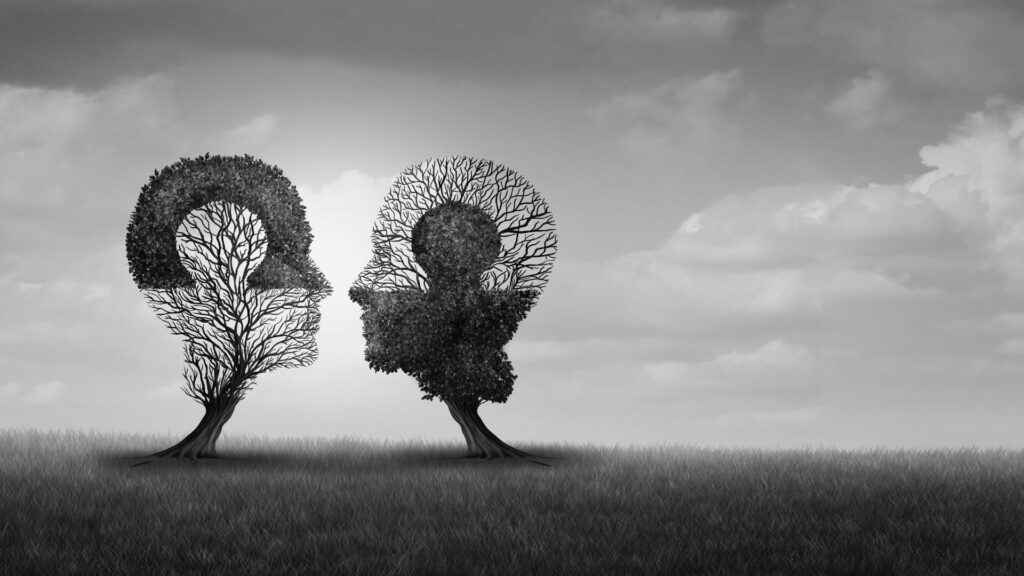Dear Harry and William,
Like all siblings who fall out, you must both be hurting and your father perhaps even more so, to see his sons unhappy and not on talking terms. This letter is for you, but also for people everywhere whose relationships sour and end up in conflict. Your suffering is not unique – the same patterns are repeated everywhere.
How can wisdom, which comes from a deeper self-understanding, help you to heal your relationship, and perhaps even more importantly, stop relationships breaking down in the first place? How can wisdom help to rebuilding trust in relationships?

Our mind assumes that others are responsible for the hurt we feel, but if we look carefully, our pain comes from how our mind reacts to situations, because another person may react very differently and not be hurt in the same way. Join me as we go on a journey to understand why our mind automatically reacts in the way that it does, and how that deeper understanding can bring illumination, freedom, compassion, and peace.https://blogs.humanwisdom.me/
All of us are conditioned by our many experiences and influences which are stored in our memory and become the ‘me’, including our old traumas. We are not aware we are conditioned and yet become attached to our conditioning. All our opinions, beliefs and narratives of how we see the world come from this pool of conditioning, which is ever-changing as we gather new experiences. We assume we are right, and those who see things differently are wrong. We try to convince others of our point of view and if they do not agree, we can withdraw or get upset. Conflict follows.
Unknown to us, our minds compare all the time – it’s an essential function and how we make sense of the world. But it can also cause envy and feelings of being less than others, and we can blame the hurt we feel on how others are behaving, even if they had no intention of hurting us. We do not see that our hurt is caused by the hidden process of comparison in our own thinking. It does not help that others may compare us to our siblings and this reinforces our narrative.
We all have emotional needs we expect others to meet and when these needs are not met we can get hurt and blame them for how we feel. This may be for love, or recognition, or to feel important, or to be listened to and understood. The closer our relationship the greater our expectations of others. We are not aware that these expectations come from our own thinking process and always regard them as reasonable. These needs are not wrong, but we are usually not aware of them. It is not easy to accept that our feeling of being hurt comes from our own unmet expectations.
We rarely communicate with wisdom. We often do not listen deeply enough to what is not being said, or pause before speaking to ask how it is going to be received. When we are criticised, our hurt and anger can make us lash out, saying things we may not mean and without a regard to the consequences.
When any relationship breaks down we blame each other and are able to cite situations where the other person behaved badly. We recruit others to agree with us, to justify our narrative of what happened. We have an urge to be right and believe we have been wronged. If we zoom out of the situation and look at the entire timeline of the relationship, we can see it is just a series of reactions in a domino fashion. Each person picks the episodes in the timeline that justify their narrative, overlooking their own role in the breakdown of the relationship. This is not unique to you. We all do it. wisdom tech how we are all rebuilding trust in relationships.
One more factor that plays out in the background is our inherent self-interest. It is wired into the way our mind functions. We are usually not aware of it and don’t want to admit it because we don’t want to feel we are selfish. If we look carefully though, it plays a role in most of the decisions we make, including in our relationships.
How can we apply this deeper understanding of ourselves to have healthy relationships, prevent problems, and heal the cracks that appear? how do we rebuilding trust in relationships?
Begin gently. Let your anger go for starters. Realize you are brothers, and deep down are the same human being. Your anger harms you and the people you love, and no one in the family can be happy as a result.
There is a simple 3-step process we can all follow. The first step is to be aware of what we are feeling, for example, we may be feeling hurt, or envious. The second step is to take ownership of how we are feeling and accept that the feeling comes from within us, without blaming ourselves or others. This is not easy. The last step is to ask a simple question – What is going on in our mind to make us feel this way? Doing the work of looking and learning about ourselves translates what we may have read, for example in this article, into a living reality in ourselves. This is like switching a light on in our own mind, and with this understanding, we can see that deep down we are all the same human beings – others also act from their conditioning, self-interest, and feeling of being hurt – as we do. Their mind is also comparing and they are not aware of it. They have expectations they are not aware of which they expect others to meet – just as we do. This understanding brings compassion because we see others are not aware of what is going on in the deeper layers of their own thinking, and that leads to compassion. With compassion, we can forgive ourselves and others, and this can heal the most intractable problems in rebuilding trust in relationships. This wisdom can prevent these problems from occurring in the first place. This leads to peace.
May you both find the courage to pursue this peace for yourselves. It will ease so much suffering all around, especially for your father, whom you both love in your own way. To find out more download the HumanWisdom app or visit humanwisdom.me and explore how it can help you live your best life.



